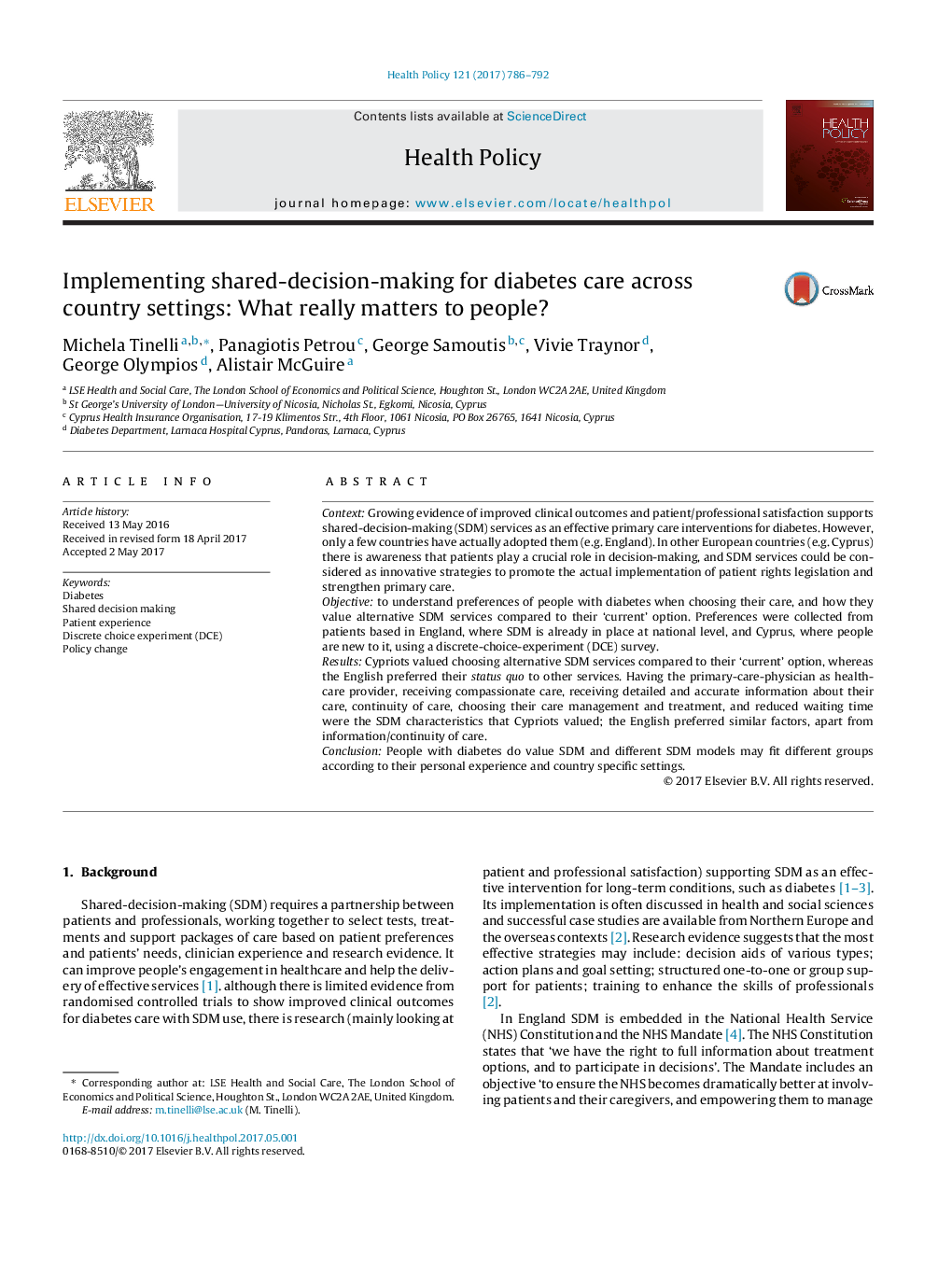| Article ID | Journal | Published Year | Pages | File Type |
|---|---|---|---|---|
| 5723449 | Health Policy | 2017 | 7 Pages |
â¢A DCE to collect diabetic patient preferences for SDM across countries is proposed.â¢This is the first application of a DCE survey to value patient care in Cyprus.â¢People with diabetes do value SDM.â¢Different SDM models may fit different settings and patient experiences.
ContextGrowing evidence of improved clinical outcomes and patient/professional satisfaction supports shared-decision-making (SDM) services as an effective primary care interventions for diabetes. However, only a few countries have actually adopted them (e.g. England). In other European countries (e.g. Cyprus) there is awareness that patients play a crucial role in decision-making, and SDM services could be considered as innovative strategies to promote the actual implementation of patient rights legislation and strengthen primary care.Objectiveto understand preferences of people with diabetes when choosing their care, and how they value alternative SDM services compared to their 'current' option. Preferences were collected from patients based in England, where SDM is already in place at national level, and Cyprus, where people are new to it, using a discrete-choice-experiment (DCE) survey.ResultsCypriots valued choosing alternative SDM services compared to their 'current' option, whereas the English preferred their status quo to other services. Having the primary-care-physician as healthcare provider, receiving compassionate care, receiving detailed and accurate information about their care, continuity of care, choosing their care management and treatment, and reduced waiting time were the SDM characteristics that Cypriots valued; the English preferred similar factors, apart from information/continuity of care.ConclusionPeople with diabetes do value SDM and different SDM models may fit different groups according to their personal experience and country specific settings.
